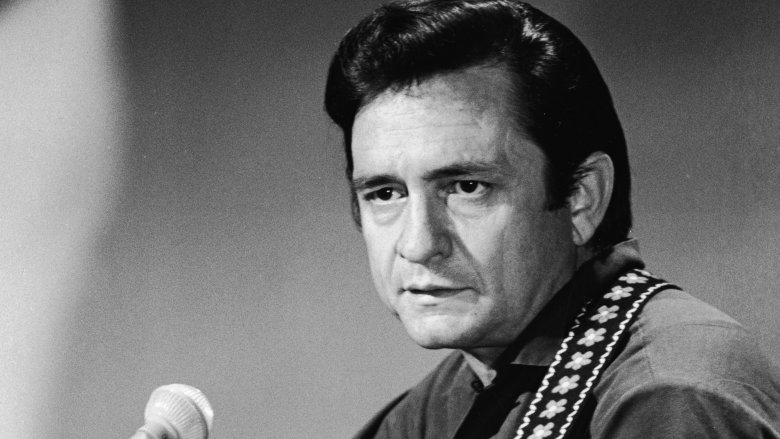In a revelation that has stunned the music world, new DNA evidence has rewritten the very story of Johnny Cash’s identity. The Man in Black — long celebrated for his supposed Cherokee ancestry and his deep empathy for the marginalized — was not Native American at all. Instead, DNA tests have uncovered significant Sub-Saharan African ancestry, suggesting that the legendary singer’s true heritage was far more complex, hidden, and deeply intertwined with America’s fraught racial history.

The bombshell came during an episode of PBS’s Finding Your Roots, where Cash’s daughter, Rosanne Cash, publicly shared the DNA results that have upended generations of family lore. For decades, the Cash family proudly traced its roots to Cherokee blood, a claim Johnny himself repeated often throughout his career. But the new findings tell a very different story — one that raises profound questions about how identity, race, and survival intersected in the American South.
Johnny Cash’s connection to Native American heritage wasn’t just personal — it shaped his art. In 1964, he released Bitter Tears: Ballads of the American Indian, a bold protest album denouncing the injustices faced by Native peoples. It was a defining moment that aligned Cash with the oppressed and cemented his reputation as a voice for the voiceless. Yet, with this revelation, historians are now forced to reconsider the origins of his empathy — and whether it came not from distant Cherokee roots, but from a hidden African lineage buried by generations of silence.
“This changes everything,” one cultural historian remarked. “Johnny Cash didn’t just sing for the downtrodden — he was one of them, in ways he may never have realized.”
The new evidence reveals that Cash’s family likely lived under the racial complexities of the early American frontier, a time when many families with African ancestry “passed” as white or Native to avoid persecution and segregation. In parts of the South, claiming Cherokee heritage became a socially acceptable way to obscure African roots — a phenomenon now well-documented by genealogists.

Experts believe the Cash family may have adopted this story generations ago, not as deceit, but as a survival mechanism in a society where racial classification could mean the difference between opportunity and oppression. “It wasn’t uncommon,” one genealogist explained. “People of mixed descent often created new identities to protect themselves and their children from a world that punished difference.”
For fans, the revelation is both shocking and illuminating. Cash’s lifelong advocacy for prisoners, the poor, and the disenfranchised — his deep compassion for those society forgot — now takes on new meaning. Could his sense of solidarity with the oppressed have been an unconscious inheritance — an ancestral memory of struggle encoded in his very DNA?
Rosanne Cash, ever poised and reflective, said the news has transformed how she views her father’s legacy. “Dad always said he wore black for the people who had no voice,” she shared on the program. “Now I understand that in a deeper way. Maybe he was connected to that pain without even knowing why.”

The revelation also reignites broader conversations about race and identity in America — and how the stories we tell about our lineage shape not only how others see us, but how we see ourselves. In an era when DNA testing is dismantling long-held family myths, Johnny Cash’s story serves as a potent reminder that heritage is rarely simple — and that truth, no matter how unexpected, can expand rather than diminish a legacy.
For the man who sang, “I wear the black for those who’ve never read / Or listened to the words that Jesus said,” the irony is both poetic and profound. The Man in Black, it seems, was more than a symbol of rebellion and redemption — he was, in his very blood, a reflection of America’s most complicated and enduring story.
Johnny Cash’s legacy has not been erased by this revelation — it has been deepened. His life and music now stand not just as testaments to artistic genius, but as proof that even legends are shaped by histories larger, older, and more mysterious than they ever knew.





